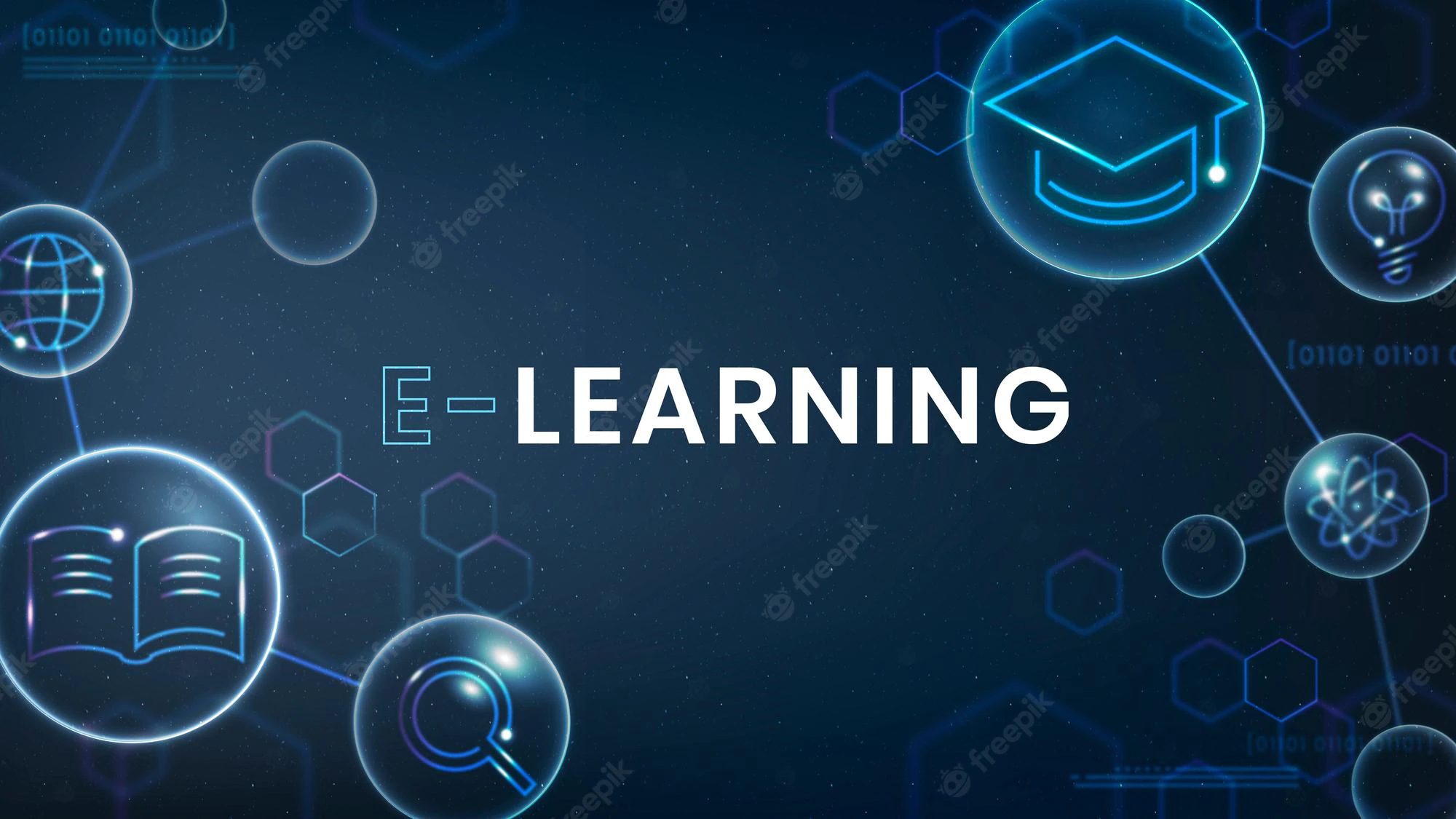In the past, the use of ICT was to provide classrooms and teachers with computers as a means to renovate school facilities and teaching methods for primary and secondary school students. Today, the use of ICT in education has evolved from merely improving the school environment to making education globally competitive through continuous innovation of the educational system and simultaneous nurturing of teacher capacity. E-learning contributed to the innovation of training methods for teachers, employees, and government officials. It has assumed an important role in the nurturing of human resources across various sectors of our society.
Rapid development of information technology helps to drive knowledge and information-based society. How to define knowledge and information-based society and what kind of trends can be expected in terms of change? In knowledge and information-based society, a new economic principle directs the society: knowledge is considered more important than any other property; knowledge and information prompt tougher competition than ever before.
The demands associated with social change lead education reform. Education must be able to respond to social changes and ensure adequate training of human resources to satisfy the demands of the changing society. No matter how hard we try to prepare for such changes, nobody can fully anticipate or predict changes to come. Therefore, a national strategic human resources development plan for the next generation should be prepared on the basis of proper foresight. Our society is increasingly multi-disciplinary. So, an individual cannot live autonomously and must be able to cooperate and collaborate with others. Thus, importance of efficient and effective communication and collaborative skills becomes a critical factor in education.
In order to solve the education-related problems and to respond to the new demands of the changing society, there is a need for reforming school education and the educational system on the whole. ICT use in education and e-Learning as one of its components are one of the best ways to expand educational opportunity so that students and citizens can be satisfied with education.
The results achieved since the introduction of ICT in education make it possible to consider the implementation of e-Learning as an alternative way to reform education.
The impact of global negative challenges like the recent COVID-19 shutdown, like the credit crunch in 2007, or even World War 2 are huge disruptors and will forever change the way things are done in several economic sectors with education being one of them. One thing for sure is that this COVID-19 shutdown will quicken the adaptation of digital learning methods by major players. The university community has not been left out and in particular ISH Yabassi. It is on this note that we prepare this note for level IV.
Pre-requisites:
- The student should have a laptop with an internet connection, together with some application programs like spreadsheets (Microsoft Excel or LibreOffice Cal), word processors (Microsoft Word), presentation programs (Microsoft PowerPoint), Programming application (Python);
- The lecturer should be provided with a Smart Classroom or a video projector in the worst-case scenario;
- Environment free from distraction;
- Create time to learn.

- Enseignant: Gah-Muti Salvanus Yevalla
- Étudiant: Hassana Agli
- Étudiant: Marie Chantalle Aleng Calmine
- Étudiant: Nankap Jimpie Ange Mireille
- Étudiant: Dylane Prestige Ayene Abena
- Étudiant: Paul Christian Baleba Béa
- Étudiant: Joseph Bavandzai Kaldadak Goudeygued
- Étudiant: Tango Benjamin
- Étudiant: Cyrielle Dorina Bougadia Omossola
- Étudiant: Jodelle Bouzan kifack
- Étudiant: Ernest Chia Karh
- Étudiant: Marie Rosine Chuendem Kampie
- Étudiant: Patrik Jordan Deffo Talla
- Étudiant: franck dimitri dibongani
- Étudiant: Cédrick Varès DJAMPOU
- Étudiant: Albertine Djeuda
- Étudiant: Gisèle Djouhou
- Étudiant: Anicet eudes Ebelou
- Étudiant: Victor EBOLO NKONGO
- Étudiant: Cheuze nounkep Emmanuelle
- Étudiant: Paulin Bertrand ENGUENE AMANA
- Étudiant: Jeff Etitane
- Étudiant: Josue Pierre EYENGUE PENDA
- Étudiant: Dupleix Fadeu Ngagoum
- Étudiant: Marceline Fanchabo
- Étudiant: Tiojio Tematio Ines Vanessa
- Étudiant: Lyne Joelle KAMGA TETSOPGUIM
- Étudiant: Dony Duvalls Kana Jeazet
- Étudiant: Ruth Kenne Djiala
- Étudiant: Rosine lea Kolla mamba
- Étudiant: Brice Aymard Kong Ebang
- Étudiant: Stevia sorelle Kouani Nkouekam
- Étudiant: Andrea Estelle Koube
- Étudiant: Lorrie hermance Kuigoua sandjong
- Étudiant: Irene Lemchi
- Étudiant: Kountz Madola
- Étudiant: Bernadette Mbarga
- Étudiant: Fabrice Armel Mbih Mbendè
- Étudiant: Séverine Brinda Medefo
- Étudiant: Viky keranne MEDJUIKOU FOKA
- Étudiant: Jean-Marie Junior MEKONGO
- Étudiant: Yves Bertrand Melingui Lewono
- Étudiant: ornella Messina
- Étudiant: nsangou ndam mohamed moustapha
- Étudiant: Félix Aurélien MOUKORY EBOA
- Étudiant: Yannick Nanga Ngono
- Étudiant: Guillaume NDJEN MAM
- Étudiant: Emmanuel Hervé Nga Onana
- Étudiant: Stéphane Junior Ngande Mebenaga
- Étudiant: Raen durrik Ngangue nemadjeu
- Étudiant: Veronique Elodie Ngo Ebienza Bea
- Étudiant: marie loraine ngo ndjock
- Étudiant: Serena Madona Marie Ngo Seck
- Étudiant: Xaverie NGONO
- Étudiant: Modeste Ngueche Ngueboui
- Étudiant: Baurel Njasseun
- Étudiant: Momo Njawe
- Étudiant: Mohamed Banissade NJIEMOUN NSANGOU
- Étudiant: Maieva Noubissie
- Étudiant: Yvette Nsangou Tiki
- Étudiant: Yvonne Paméla Ntsama Owona
- Étudiant: Isaac Desire Nyee Mbelle
- Étudiant: Elvira Jennifer Nzouognon Peyembouo
- Étudiant: Aurélie Ongmalela
- Étudiant: Lorraine Marlyse Priso kingue
- Étudiant: Bangha Ransom Ankiambom
- Étudiant: Franck Stéve Signé Woussah
- Étudiant: Mathieu Tadiesse
- Étudiant: Clavie durelle Tchapda dimo
- Étudiant: William Tchaptchet Ndjat
- Étudiant: Rita Erika Tchounbou
- Étudiant: Guy Jaures Tchuente Seuyim
- Étudiant: Gires Maxime Tegikue
- Étudiant: Rodez TEMGOUA Leponkouo
- Étudiant: Lucie Teughanou
- Étudiant: Djibryl Noel Togue Tasse
- Étudiant: Herman Joress Toguem Bopda
- Étudiant: Romaric Eloi Tsalla Meyong
- Étudiant: Achare Valerie
- Étudiant: Rosny Magnol Womecha Womecha
- Étudiant: Frange YEPDJO
- Étudiant: Adrien Toussaint Yomen Heume